2ANNAS ISFF 2025
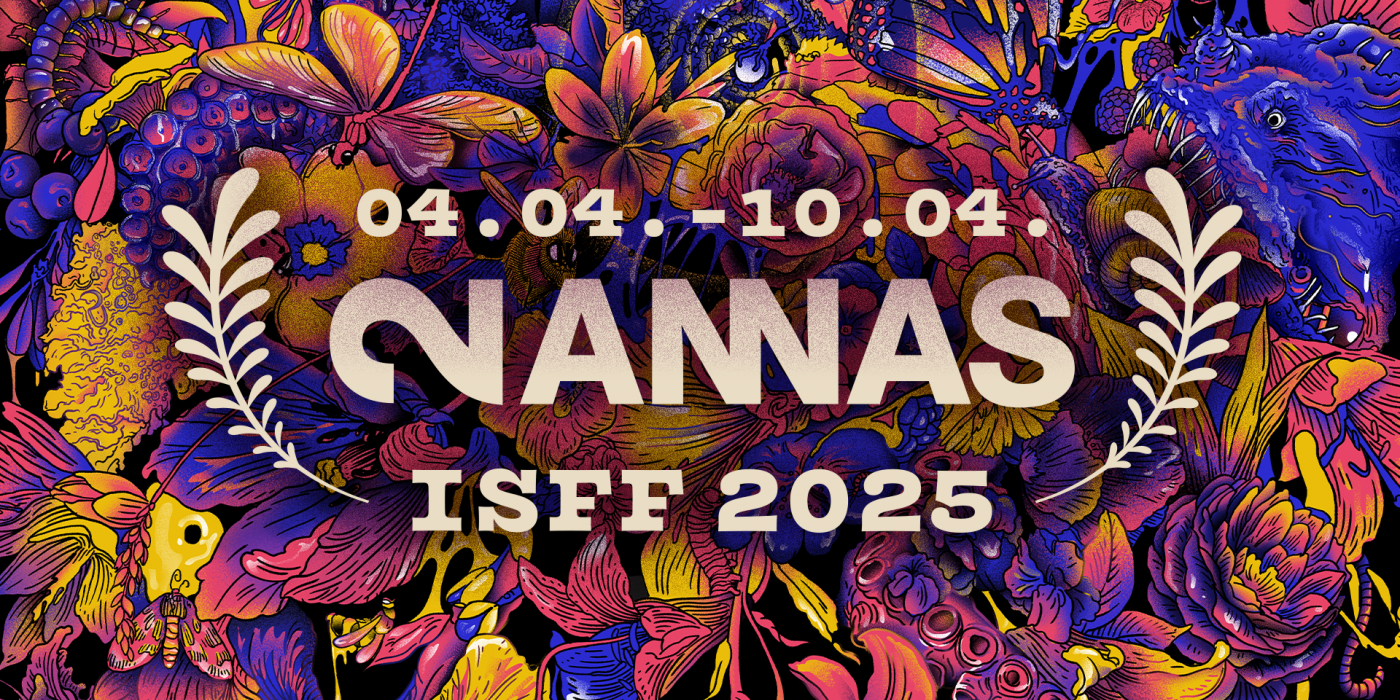
2ANNAS ISFF 2025 Information centre:
Kaņepes Kultūras centrs, Skolas street 15, Riga
Opening hours (5.04. - 10.04.) 12:00 - 18:00
2ANNAS ISFF 2025 event venues:
Latvian Academy of Art (former LU faculty of biology), Kronvalda Boulevard 4, Rīga
Kaņepes Kultūras centrs, Skolas street 15, Riga
LKA National Film School, Miera street 58a, Riga
Skapis Bar, Aristida Briāna street 9a, Riga
Aleponija Bar, Ernesta Birznieka-Upīša street 22, Rīga
Cinema screenings:
Latvian Academy of Art, Kronvalda bulvāris 4, Rīga
Kaņepes Kultūras centrs, Skolas street 15, Riga
K.Suns Cinema Gallery, Elizabetes iela 83/85, Riga
Forum Cinemas, 13. janvāra iela 8, Riga
HOW TO WATCH ONLINE
All 2ANNAS online screenings can be found here: https://watch.eventive.org/2annas
After purchasing the digital ticket, films will appear active (ready to watch) 1 hour prior to the given on-site screening. It gives you 3 hours to start watching the programme and 24 hours to terminate.
04.04, Friday
Cinema as an art form is constantly evolving, seeking new means of expression and technical possibilities, and short films are the best platform to observenew experiments, manifestations of breaking technological possibilities and the development of a new language. At the same time, cinema, from its very beginnings, offers an opportunity to reflect on progress, on technological development and on whether progress has limits at all and, if so, whether they are imposed by ethical or technological restrictions.
“The Loop of Progress” is a program of eight short films that offers a glimpse into our relationship with technological progress. Constantly evolving, constantly moving forward, we raise new questions about the boundaries of ethics and what the relationship between technology and humans really is. Technology is becoming more and more present in our everyday lives, in our society, in our relationships with each other. “The Loop of Progress” does not offer answers to questions about whether our relationship with technology has gone too far and whether it is becoming destructive. Instead, the program asks one of the most important questions of the 21st century: does technology make human life easier, or have we started to be servants to technology instead?
The relationship between technology, society, and the individual raises complex questions about the symbiosis of these three elements. Of course, there are no simple answers, but asking the right question is often the first and most important step in critically examining one's own relationship with technology.
Agnese Logina, the curator of the programme
Films
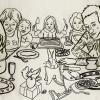
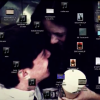

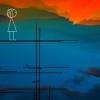
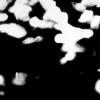
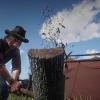
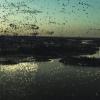

As every year, during the opening event of the festival, you will have the opportunity to meet the jury, learn more about the festival and its program, and enjoy dance and visual performance in an informal atmosphere.
This year, we will highlight the festival's main theme – SYMBIOSIS. It is worth mentioning that the venue is not chosen randomly, but rather as a bold step towards the unconventional – by holding the event in the former building of the University of Latvia Faculty of Biology, which has now become home to students of the Art Academy. A true symbiosis, where curiosity meets nature and art!
The artist Katrīna Neiburga will take the stage together with Anika Barkan (Denmark) and Mika Forsling (Sweden), representing the MØR collective. The artists will present a unique VJ performance.
MØR collective is an international performing arts community working on socially engaged and critical art projects. The collective aims to create accessible works that resonate with audiences, broaden our perspectives, and strengthen our empathetic compass, fostering a deeper connection with the contemporary world.
More about the collective: https://www.moercollective.dk/about
Let’s meet at Symbiosis!
21:30
Binocular or eye dances are both unconventional medicine and contemporary art performance (Approximate Art). Usually they take place under the guidance of a specialist, accompanied by special music.
The basic concept is that if the eyes blink rhythmically and consciously, then the underused parts of the brain develops, which strengthens physical and creative health.
23:00
Regular dances:
Turbofolk and Robertagobziņaoldsongsrobertagobziņanewsongsongrobertsgobziņš
Roberts Gobziņš - Stylommatophora, vertiginidae
Order of humanstylommatophora, family of blossomstars
Status: Very rare species. Listed on the IUSN List of Threatened Species
Distribution and occurrence: No territorial restrictions, no intrusive advertising, mostly at cultural and historical and private events
Biology: Alcophilous species. Lives in the cover of the ground. Feeds on discount products. Can be observed in nature with the naked eye. Reproduces by division
05.04, Saturday
What does it mean to be a living being? With a body, with a will, with a context? What does it mean to be water or a fish? What does it mean to fight for your freedom?
The 2ANNAS ISFF International Short Film Competition is like 5 different collages, combining the best and most artistically exciting short films from 2023/2024. Each of the competition programs is created as an individual work of art on a specific theme, idea or associative string, thus allowing the viewer to enjoy not only each of the films, but the program itself as a whole. The programs will feature films, animations, documentaries and experimental short films from all over the world.
Join the screenings of the 2ANNAS ISFF International Short Film Competition at the Kaņepes Culture Center!
Program curator, Laima Grazdanovica
A cup of tea in hand, a comfy couch, watching from home – feel the magic of the festival!
Only in Latvia – experience the 2ANNAS film selection at a time and place that suits you!
Click here to watch this screening online.
Once you purchase your ticket, the screening link will become active at the exact time the in-person screening starts at the festival.
From that moment, you’ll have:
– 3 hours to begin watching;
– 24 hours to enjoy the full film programme at your own pace.
Films
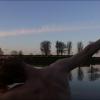
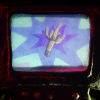
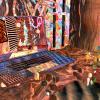

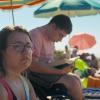

What does it mean to be a living being? With a body, with a will, with a context? What does it mean to be water or a fish? What does it mean to fight for your freedom?
The 2ANNAS ISFF International Short Film Competition is like 5 different collages, combining the best and most artistically exciting short films from 2023/2024. Each of the competition programs is created as an individual work of art on a specific theme, idea or associative string, thus allowing the viewer to enjoy not only each of the films, but the program itself as a whole. The programs will feature films, animations, documentaries and experimental short films from all over the world.
Join the screenings of the 2ANNAS ISFF International Short Film Competition at the Kaņepes Culture Center!
Program curator, Laima Grazdanovica
A cup of tea in hand, a comfy couch, watching from home – feel the magic of the festival!
Only in Latvia – experience the 2ANNAS film selection at a time and place that suits you!
Click here to watch this screening online.
Once you purchase your ticket, the screening link will become active at the exact time the in-person screening starts at the festival.
From that moment, you’ll have:
– 3 hours to begin watching;
– 24 hours to enjoy the full film programme at your own pace.
Films
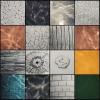
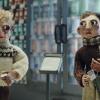
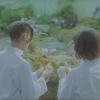
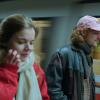
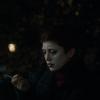
This is the second year that 2025 2ANNAS ISFF is creating a queer short film section “Pure Queer”, which examines a phenomenon of this film genre in three focus programs, bringing together both, widely acclaimed works from around the world and short films that have only recently begun their festival circuit journey. This year, we will look at the concept of femininity through a queer lens, get closer to reality in a documentary film screening, and return to the “queer-coded” screen villains that were common during the Hays Code. This year, the festival’s public program includes a panel discussion on queer masking and stereotyping in contemporary cinema, as well as a section party at the nightclub “Skapis”, which will offer visitors the opportunity to imagine the most heteronormative version of themselves for one evening.
One of the foundational texts of queer and feminist theory, philosopher Judith Butler’s “The Restlessness of the Gendered,” shows that gender and other identities are performative; meaning that, they are constructed on a personal and societal level by repeating certain patterns of behavior, social structures, and expectations, and, like everything else, flow and change across time and cultures. This year’s focus programs offer a look at “femininity” not only as a social and personal role, but also as an aesthetic, philosophical, and filmic format; to feel the pulse of a global community threatened by political rhetoric once again and to train the queer gaze in everyday life through a documentary film program; to encounter characters on screen who have no place in a smoothed-out and “normal” world and its notions of good and evil.
After the screening of the “Queer Villains” program, we will meet for a panel discussion with filmmakers and researchers to discuss how queerness has been masked in 20th-century cinema, ways to recognize and see through these masks, as well as the stereotypes and tools used to construct queer characters in contemporary mainstream cinema. The panel discussion will be moderated by Žulijens Nuhums Kulibali , curator of the “Pure Queer” section.
Žulijens Nuhums Kulibali - curator of the programme
Films
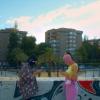
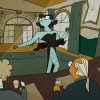
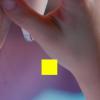



This is the second year that 2025 2ANNAS ISFF is creating a queer short film section “Pure Queer”, which examines a phenomenon of this film genre in three focus programs, bringing together both, widely acclaimed works from around the world and short films that have only recently begun their festival circuit journey. This year, we will look at the concept of femininity through a queer lens, get closer to reality in a documentary film screening, and return to the “queer-coded” screen villains that were common during the Hays Code. This year, the festival’s public program includes a panel discussion on queer masking and stereotyping in contemporary cinema, as well as a section party at the nightclub “Skapis”, which will offer visitors the opportunity to imagine the most heteronormative version of themselves for one evening.
One of the foundational texts of queer and feminist theory, philosopher Judith Butler’s “The Restlessness of the Gendered,” shows that gender and other identities are performative; meaning that, they are constructed on a personal and societal level by repeating certain patterns of behavior, social structures, and expectations, and, like everything else, flow and change across time and cultures. This year’s focus programs offer a look at “femininity” not only as a social and personal role, but also as an aesthetic, philosophical, and filmic format; to feel the pulse of a global community threatened by political rhetoric once again and to train the queer gaze in everyday life through a documentary film program; to encounter characters on screen who have no place in a smoothed-out and “normal” world and its notions of good and evil.
After the screening of the “Queer Villains” program, we will meet for a panel discussion with filmmakers and researchers to discuss how queerness has been masked in 20th-century cinema, ways to recognize and see through these masks, as well as the stereotypes and tools used to construct queer characters in contemporary mainstream cinema. The panel discussion will be moderated by Žulijens Nuhums Kulibali , curator of the “Pure Queer” section.
Žulijens Nuhums Kulibali - curator of the programme
Films
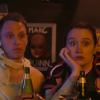
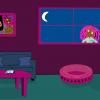


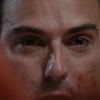
This is the second year that 2025 2ANNAS ISFF is creating a queer short film section “Pure Queer”, which examines a phenomenon of this film genre in three focus programs, bringing together both, widely acclaimed works from around the world and short films that have only recently begun their festival circuit journey. This year, we will look at the concept of femininity through a queer lens, get closer to reality in a documentary film screening, and return to the “queer-coded” screen villains that were common during the Hays Code. This year, the festival’s public program includes a panel discussion on queer masking and stereotyping in contemporary cinema, as well as a section party at the nightclub “Skapis”, which will offer visitors the opportunity to imagine the most heteronormative version of themselves for one evening.
One of the foundational texts of queer and feminist theory, philosopher Judith Butler’s “The Restlessness of the Gendered,” shows that gender and other identities are performative; meaning that, they are constructed on a personal and societal level by repeating certain patterns of behavior, social structures, and expectations, and, like everything else, flow and change across time and cultures. This year’s focus programs offer a look at “femininity” not only as a social and personal role, but also as an aesthetic, philosophical, and filmic format; to feel the pulse of a global community threatened by political rhetoric once again and to train the queer gaze in everyday life through a documentary film program; to encounter characters on screen who have no place in a smoothed-out and “normal” world and its notions of good and evil.
After the screening of the “Queer Villains” program, we will meet for a panel discussion with filmmakers and researchers to discuss how queerness has been masked in 20th-century cinema, ways to recognize and see through these masks, as well as the stereotypes and tools used to construct queer characters in contemporary mainstream cinema. The panel discussion will be moderated by Žulijens Nuhums Kulibali , curator of the “Pure Queer” section.
Žulijens Nuhums Kulibali - curator of the programme
Pure Queer discussion: QUEER MASKING
Saturday 05.04. / 20:30 / Kaņepes Culture Centre, big hall
Queers in cinema have existed since cinema’s beginnings – the only question is how to see them? The 20th century practice of "queer coding" in cinema has often hidden or integrated LGBTQ+ community members into the screen world as villains or comic characters, which has left a lasting impression on how we recognize these identities on screen. In a discussion with filmmakers, researchers and curators, we will look at both coding practices in the cinema of our region and talk about contemporary queer cinema tops, codes and masks, trying to outline the direction in which this cinema is going.
The panellists:
- cinema director Romas Zabarauskas (Lithuania),
- cinema researcher and curator Ilona Vitkauskaitė (Lithuania),
- "Trans Fest Stockholm" creators Paloma Halén Román and Juno Frisk (Sweden).
The discussion will be moderated by "Pure Queer" programme curator Žulijens Nuhums Kulibali.
The discussion will be held in English.
Are you salivating at the mouth for a night of frisky fun? Then come quench your thirst with a trip to our kitchen where the juices flow freely! From apartment quickies to Heimat hickeys, take pleasure into your own hands and learn to love your cunt as we navigate the back alleys of explicit lust and erotic discovery. Get messy but also be prepared to whip out your feather dusters and vacuuming tools to preach a new gospel: cleanliness is close to horniness. Are you ready for a kinky climax?
The screening was created in collaboration with the Vienna Short Film Festival.
Films

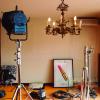








Bleached jeans, rolled-up collars, "Sensation White" and Lady Gaga as the most scandalous accents on the DJ's playlist. If we understand queer as something that is not heteronormative, then what is hetero, remains an open question, which this evening, celebrating the "Pure Queer" program of the 2ANNAS film festival, we invite you to try solving on the dance floor, in drag performances and at the awarding of the best straight-drag visitor. Time to put the rave gear to rest, pull out low-waisted jeans and a polo shirt from the depths of the closet to turn the mirror on non-queers and say: "Mirror, mirror, on the wall, tell me which queen is the most heteronormative of all"?
DJ: Partners in USB
Drag: Vilhelmīne Žagata, Asteria, Vencheska
Dress code: Early 2000's club scene
06.04, Sunday
In this year's selection of the children and youth program, we opened the curating process to a group of young people. We wanted to develop a program that includes the opinions and impressions of a young audience. The idea was to create an awareness for differences and open the group to a discussion about art and its values. Different styles of movies, different stories, different approaches on how to watch a movie or how to shoot one. Especially the different ways to describe our experiences watching them brought us together. And so we explored a world of differences that made us find our program this year. Differences are needed for development. That is clear. To differ between lies and truth for example or to notice prejudice and what is really happening around us. Good movies open access to different ways on how to develop the way we learn to see ourselves and others.
Cinema has the power to imagine a world beyond our physical and ideological borders. It's the magic of light and darkness, yet another difference and the presence of all. But in order to process differences we need communities that know how to cope with them. And although difference is elementary for the way we describe realities and negotiate them, we decided that only through a good community and a strong sense of kinship, we learn how to celebrate our differences and respect them.
To educate a young audience in two age appropriate programs we decided that we want to emphasize community. In a world crumbling into the particular interests of only a few very powerful individuals, we understood that communities are a way to guarantee the freedom of many more. And although we might never get there and because we are not sheep and our goal is not to become one, we are, all of us, responsible to make this world bloom over and over again to dance in it like butterflies with broken hips.
It is this sense of kinship and responsibility we wanted to share with this year's program and we invite all of you to share your experiences with us.
/ Children's and Youth Short Film Competition curator - Ron Rosenbergs /
A cup of hot cocoa, a cozy pillow and fun stories on screen – kid-friendly cinema right in your home!
Only in Latvia – enjoy a special 2ANNAS selection made just for children, anytime and anywhere you like!
Click here and join the fun film adventure online.
Once you purchase your ticket, the screening link will become active at the exact time the in-person screening starts at the festival.
From that moment, you’ll have:
– 3 hours to start watching;
– 24 hours to enjoy the entire programme together with your family at your own pace.
Films
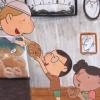
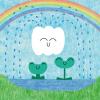
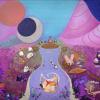

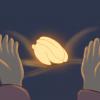
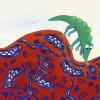
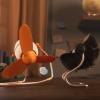
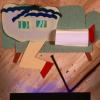
In this year's selection of the children and youth program, we opened the curating process to a group of young people. We wanted to develop a program that includes the opinions and impressions of a young audience. The idea was to create an awareness for differences and open the group to a discussion about art and its values. Different styles of movies, different stories, different approaches on how to watch a movie or how to shoot one. Especially the different ways to describe our experiences watching them brought us together. And so we explored a world of differences that made us find our program this year. Differences are needed for development. That is clear. To differ between lies and truth for example or to notice prejudice and what is really happening around us. Good movies open access to different ways on how to develop the way we learn to see ourselves and others.
Cinema has the power to imagine a world beyond our physical and ideological borders. It's the magic of light and darkness, yet another difference and the presence of all. But in order to process differences we need communities that know how to cope with them. And although difference is elementary for the way we describe realities and negotiate them, we decided that only through a good community and a strong sense of kinship, we learn how to celebrate our differences and respect them.
To educate a young audience in two age appropriate programs we decided that we want to emphasize community. In a world crumbling into the particular interests of only a few very powerful individuals, we understood that communities are a way to guarantee the freedom of many more. And although we might never get there and because we are not sheep and our goal is not to become one, we are, all of us, responsible to make this world bloom over and over again to dance in it like butterflies with broken hips.
It is this sense of kinship and responsibility we wanted to share with this year's program and we invite all of you to share your experiences with us.
/ Children's and Youth Short Film Competition curator - Ron Rosenbergs /
A cup of tea in hand, a comfy couch, watching from home – feel the magic of the festival!
Whether you're in Latvia, Lithuania or Estonia – experience the 2ANNAS film selection at a time and place that suits you!
Click here to watch this screening online.
Once you purchase your ticket, the screening link will become active at the exact time the in-person screening starts at the festival.
From that moment, you’ll have:
– 3 hours to begin watching;
– 24 hours to enjoy the full film programme at your own pace.
Films
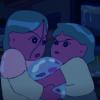
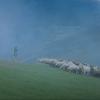
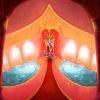
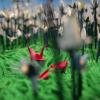



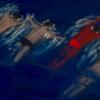
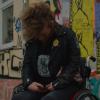
What does it mean to be a living being? With a body, with a will, with a context? What does it mean to be water or a fish? What does it mean to fight for your freedom?
The 2ANNAS ISFF International Short Film Competition is like 5 different collages, combining the best and most artistically exciting short films from 2023/2024. Each of the competition programs is created as an individual work of art on a specific theme, idea or associative string, thus allowing the viewer to enjoy not only each of the films, but the program itself as a whole. The programs will feature films, animations, documentaries and experimental short films from all over the world.
Join the screenings of the 2ANNAS ISFF International Short Film Competition at the Kaņepes Culture Center!
Program curator, Laima Grazdanovica
A cup of tea in hand, a comfy couch, watching from home – feel the magic of the festival!
Only in Latvia – experience the 2ANNAS film selection at a time and place that suits you!
Click here to watch this screening online.
Once you purchase your ticket, the screening link will become active at the exact time the in-person screening starts at the festival.
From that moment, you’ll have:
– 3 hours to begin watching;
– 24 hours to enjoy the full film programme at your own pace.
Films
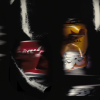
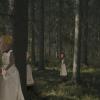
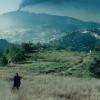
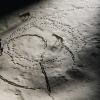
What does it mean to be a living being? With a body, with a will, with a context? What does it mean to be water or a fish? What does it mean to fight for your freedom?
The 2ANNAS ISFF International Short Film Competition is like 5 different collages, combining the best and most artistically exciting short films from 2023/2024. Each of the competition programs is created as an individual work of art on a specific theme, idea or associative string, thus allowing the viewer to enjoy not only each of the films, but the program itself as a whole. The programs will feature films, animations, documentaries and experimental short films from all over the world.
Join the screenings of the 2ANNAS ISFF International Short Film Competition at the Kaņepes Culture Center!
Program curator, Laima Grazdanovica
A cup of tea in hand, a comfy couch, watching from home – feel the magic of the festival!
Only in Latvia – experience the 2ANNAS film selection at a time and place that suits you!
Click here to watch this screening online.
Once you purchase your ticket, the screening link will become active at the exact time the in-person screening starts at the festival.
From that moment, you’ll have:
– 3 hours to begin watching;
– 24 hours to enjoy the full film programme at your own pace.
Films

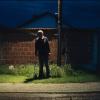
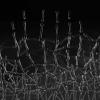
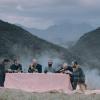


This screening is available only in Latvia.
The link to the online screening is available here:
https://shorturl.at/XJCSV
Films


This is the second year that 2025 2ANNAS ISFF is creating a queer short film section “Pure Queer”, which examines a phenomenon of this film genre in three focus programs, bringing together both, widely acclaimed works from around the world and short films that have only recently begun their festival circuit journey. This year, we will look at the concept of femininity through a queer lens, get closer to reality in a documentary film screening, and return to the “queer-coded” screen villains that were common during the Hays Code. This year, the festival’s public program includes a panel discussion on queer masking and stereotyping in contemporary cinema, as well as a section party at the nightclub “Skapis”, which will offer visitors the opportunity to imagine the most heteronormative version of themselves for one evening.
One of the foundational texts of queer and feminist theory, philosopher Judith Butler’s “The Restlessness of the Gendered,” shows that gender and other identities are performative; meaning that, they are constructed on a personal and societal level by repeating certain patterns of behavior, social structures, and expectations, and, like everything else, flow and change across time and cultures. This year’s focus programs offer a look at “femininity” not only as a social and personal role, but also as an aesthetic, philosophical, and filmic format; to feel the pulse of a global community threatened by political rhetoric once again and to train the queer gaze in everyday life through a documentary film program; to encounter characters on screen who have no place in a smoothed-out and “normal” world and its notions of good and evil.
After the screening of the “Queer Villains” program, we will meet for a panel discussion with filmmakers and researchers to discuss how queerness has been masked in 20th-century cinema, ways to recognize and see through these masks, as well as the stereotypes and tools used to construct queer characters in contemporary mainstream cinema. The panel discussion will be moderated by Žulijens Nuhums Kulibali , curator of the “Pure Queer” section.
Žulijens Nuhums Kulibali - curator of the programme
Films

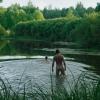
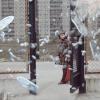
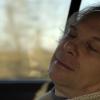
07.04, Monday
A cup of tea in hand, a comfy couch, watching from home – feel the magic of the festival!
Whether you're in Latvia, Lithuania or Estonia – experience the 2ANNAS film selection at a time and place that suits you!
Click here to watch this screening online.
Once you purchase your ticket, the screening link will become active at the exact time the in-person screening starts at the festival.
From that moment, you’ll have:
– 3 hours to begin watching;
– 24 hours to enjoy the full film programme at your own pace.
Films
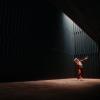
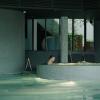
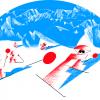
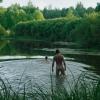

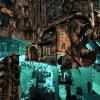
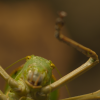
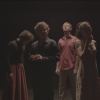
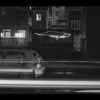
A cup of tea in hand, a comfy couch, watching from home – feel the magic of the festival!
Only in Latvia – experience the 2ANNAS film selection at a time and place that suits you!
Click here to watch this screening online.
Once you purchase your ticket, the screening link will become active at the exact time the in-person screening starts at the festival.
From that moment, you’ll have:
– 3 hours to begin watching;
– 24 hours to enjoy the full film programme at your own pace.
Films
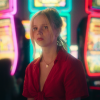

My name is Dzintars. Greek "ἤλεκτρον" (ēlektron) means amber (latv. - dzintars).
I live in a strange place in Saulpalampe, which is illuminated by a big lamp, called the Sun, while it shines - all kinds of creatures below, in Palampe, bustle and move. Sometimes the Sun shuts off and the environment gets dark, then they call me to bring them a bucket of electrons.
Beings on spherical planets, traces of ancient civilizations and spaceships, Dzintars Briedis will take us on a magical and sliding, electronic sound adventure with his homemade instrument "Slīdkskanis".
Observer and observed, object and subject, the director and their heroine. Three deeply personal films reveal the symbiosis of female directors and their characters. Classical filmmaking still takes place within hierarchical structures, so ethical questions about power dynamics are inevitable. Does this change when directors themselves become the characters of the film and do not hide their doubts and desires, as well as the filmmaking process?
The protagonist of Nudar takes the camera out of the hands of the director and turns it towards her, Tessa Luisa Popp asks her family members uncomfortable questions in a light humorous manner (The Origin of Trouble), and Katharina Petke (Jedermann und ich) reveals that she is in love with the main character of the film.
Humorous, essayistic, and self-reflective stories ask ethical questions about the filmmakers' relationships with their characters.
Films

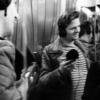

08.04, Tuesday
A cup of tea in hand, a comfy couch, watching from home – feel the magic of the festival!
Whether you're in Latvia, Lithuania or Estonia – experience the 2ANNAS film selection at a time and place that suits you!
Click here to watch this screening online.
Once you purchase your ticket, the screening link will become active at the exact time the in-person screening starts at the festival.
From that moment, you’ll have:
– 3 hours to begin watching;
– 24 hours to enjoy the full film programme at your own pace.
Films
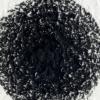

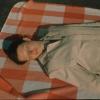
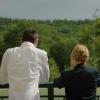
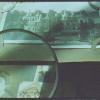
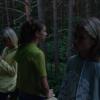

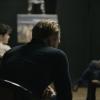
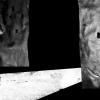
Film festivals play an important role in providing a valuable platform for the distribution of (short) films, as well as an opportunity for filmmakers to gain visibility but how to find the most suitable festival when there are so many options.
Panelists:
- Sarah Adam, Hamburg Cinematheque, Hamburg Short Film Festival, Kassel Documentary and Video Festival, Germany
- Flavia Dima, Bucharest Experimental Film Festival, Romania
- Philip Ilson, London Short Film Festival, United Kingdom
- Andrew Norton, Raina Films distribution, Finland
Moderator: Simone Bardoni, Concorto Film Festival, Light On, Italy.
A cup of tea in hand, a comfy couch, watching from home – feel the magic of the festival!
Only in Latvia – experience the 2ANNAS film selection at a time and place that suits you!
Click here to watch this screening online.
Once you purchase your ticket, the screening link will become active at the exact time the in-person screening starts at the festival.
From that moment, you’ll have:
– 3 hours to begin watching;
– 24 hours to enjoy the full film programme at your own pace.
Films

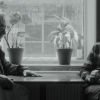
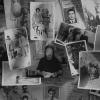
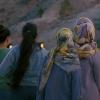
A cup of tea in hand, a comfy couch, watching from home – feel the magic of the festival!
Only in Latvia – experience the 2ANNAS film selection at a time and place that suits you!
Click here to watch this screening online.
Once you purchase your ticket, the screening link will become active at the exact time the in-person screening starts at the festival.
From that moment, you’ll have:
– 3 hours to begin watching;
– 24 hours to enjoy the full film programme at your own pace.
Films
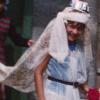

A cup of tea in hand, a comfy couch, watching from home – feel the magic of the festival!
Whether you're in Latvia, Lithuania or Estonia – experience the 2ANNAS film selection at a time and place that suits you!
Click here to watch this screening online.
Once you purchase your ticket, the screening link will become active at the exact time the in-person screening starts at the festival.
From that moment, you’ll have:
– 3 hours to begin watching;
– 24 hours to enjoy the full film programme at your own pace.
Films


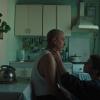
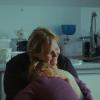

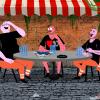
09.04, Wednesday
This discussion will address the question of why and how different genres are fused to form a single, multi-layered artistic vision. It will discuss how the fusion of different genres and styles expands the possibilities of narrative and visual art, as well as how hybrid films affect the audience's perception and experience. We will also try to outline how this cross-genre problematic exists and what the future development of genre blends might look like.
Panelists:
- Filipe Caeiro, director, researcher, Portugal / Germany
- Nikita Diakur, director, Germany
- Magdalena Hejzlarová, artist; director and author of various interdisciplinary projects, Czech Republic
- Anna Zača, curator, director, co-founder of Riga IFF, Latvia
Moderator: Riina Mikkonen, Tampere Film Festival, Finland.
In biology parasitism is a close relationship between species, where one organism, the parasite, uses another organism’s resources to stay alive and by doing so harms the other organism. The entomologist Edward Osborne Wilson characterised parasites' way of feeding as "predators that eat prey in units of less than one”. “The Vampire” by the French documentary director Jean Painlevé takes this statement literally.
However, the word parasite has taken on a vivid figurative meaning, referring to people who live off the efforts of others or society. In the Soviet Union social parasitism was considered a political crime. In the film “Haemogram” by Latvian director Ansis Epners drunkards, bloodied and aggressive, appear as a particularly undesirable group of people which the society is forced to aid anyway. Meanwhile, William Kentridge, whose art focuses heavily on South African apartheid, introduces the character of mine owner Soho Eckstein – a domineering parasite who lives off the fruits of black labor. Some, such as the Japanese animator Yôji Kuri, consider the whole human species as parasites, but others, like Polish Maks Rzontkowski, remind us that it is not healthy to become host to expectations of others.
Sometimes invasive species that settle in a non-native environment are mistakenly classified as parasites. But maybe they might be allowed to stay there, asks Estonian contemporary artist Sandra Kosorotova. The films by Marcela Heilbron (Panama) and Nebojša Slijepčević (Croatia) tell about different historical periods, but the attitude towards the other is frighteningly familiar. After all, anyone who society might consider a parasite is always a living organism.
Dace Čaure, curator of the programme
Films

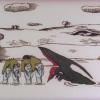
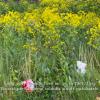
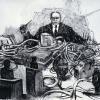
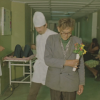
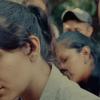
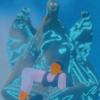

Don't miss the opportunity to find out the winners of 2ANNAS 2025 Celebrate together with the film directors and the festival team.
See you there!
In collaboration with the internationally recognized initiative A Wall is a Screen from Germany that turns building facades into screens, we will go on a cinema tour through the center of Riga. The curators of A Wall is a Screen have selected short films, creating an urban sightseeing tour that represents selected buildings and architecture of Riga. Participants will take part in a walk, during which we will follow from wall to wall and thus from film to film.
As a result, seemingly familiar places literally appear in a new light, and each film interacts with its surroundings, and vice versa. Only the starting point is known in advance, the films and other places remain as a surprise for the participants.
First meeting point at the Latvian National Museum of Art.
DJ SAIRAM, real name Māris Skuja, has been an active DJ on the Latvian electronic dance music scene for almost 20 years.
Rumor has it that in his childhood, SAIRAM had a large collection of records at his grandparents' in the countryside, spinning them on the floor and singing along, so it is safe to say that his interest in vinyl arose ‘from a young age’ – it was followed by elementary school class evenings, the school radio station, Ventspils University of Applied Sciences student discos, various meatball parties and sports festivals, weddings and other events. SAIRAM has participated in various Latvian music festivals – Labadaba, Zvērāfest, Sintētika Sircapziņa, etc. He also performs occasionally in neighboring countries. In Lithuania – Tundra, Revolution festival, Klaipeda Sound Festival, etc.
10.04, Thursday
Love transcends gender, distance, and age—it arrives unexpectedly, often in the most unusual and bizarre ways. In times of war, love becomes even more fragile, urgent, and deeply felt. Every sensation is heightened, every emotion intensified, as people cling to moments of connection amidst uncertainty and chaos.
This program presents six stories from Ukraine, spanning different years of Russia's ongoing war against the country. These films capture not just the thrill of love but also its sorrow—intimacy and longing, appreciation and regret, the hope of reunion and the grief of loss. Through raw emotion and striking storytelling, these Ukrainian voices remind us that even in the darkest times, love persists. It transforms, it heals, and it leaves its mark forever.
Programme in cooperation with Kyiv International Short Film Festival, curators - Olga Gusiatynska and Oleksandra Prokopenko.
Films
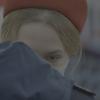
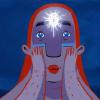
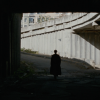
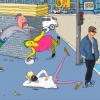
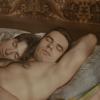
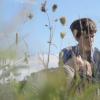
With the rise of #MeToo, #BlackLivesMatter, and other active protest movements, the question of who tells whose story and how, is increasing. Collective and participatory filmmaking methods challenge traditional film hierarchy structures, looking for alternative ways to organize the filming process. In collectively created films, the project is not directed by a single director, but by a collective of authors, such as Jean-Luc Godard and Jean-Pierre Gorin, Dziga Vertov’s group, who collaborate in the creation of the film. The participatory method involves the characters in the filming process. The use of both approaches promotes active discussion, creativity and cooperation among those involved, as well as opens up opportunities for experimentation.
The lecture will collectively examine both filming methods, demonstrating historical and contemporary examples from different countries, as well as invite the audience to ask questions, share experiences and experiment on the spot.
The lecture will be led by director, researcher and curator Astra Zoldnere, Latvia / Germany.
2ANNAS Forum is organized with the support of the National Film Centre, Creative Europe MEDIA Desk in Latvia and the Goethe-Institut in Riga. Admission is free of charge for anyone interested.
What has the international jury decided? Watch the best short films of 2024 in one compact screening.
We like it short!
A cup of tea in hand, a comfy couch, watching from home – feel the magic of the festival!
Only in Latvia – experience the 2ANNAS film selection at a time and place that suits you!
Click here to watch this screening online.
Once you purchase your ticket, the screening link will become active at the exact time the in-person screening starts at the festival.
From that moment, you’ll have:
– 3 hours to begin watching;
– 24 hours to enjoy the full film programme at your own pace.
Films











